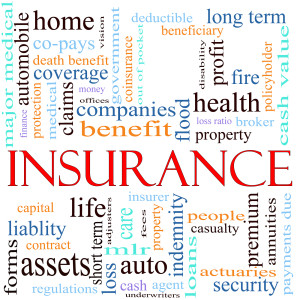 Restoring your home to its former functionality after a natural event is a stressful endeavor for many homeowners, especially when the damage to a home is significant or results in a complete loss. But Florida’s Valued Policy Law is in place to help.
Restoring your home to its former functionality after a natural event is a stressful endeavor for many homeowners, especially when the damage to a home is significant or results in a complete loss. But Florida’s Valued Policy Law is in place to help.
However, because it is an insurance-related process, it can become complicated and confusing due to various rules and exceptions. But the following specifics and potential exclusions can help to facilitate some understanding.
How Valued Policy Law Works
Those homes completely destroyed as the result of a natural event are considered to be ‘total losses’ in the eyes of insurance companies, making these companies liable. The amount a particular company will be liable for will depend on the limits of your policy, and is meant to compensate for the value of a property. However, it is also means to expedite the process for full compensation where a total loss has occurred.
Another type of loss covered by Valued Policy Law is constructive total loss, which occurs when a home sustains damage from a covered peril, but rebuilding or repair is hindered by a law or an ordinance.
The important thing to note here is that every policy will have a certain set of specifics which detail the types of disasters covered under Valued Policy Law. One example of a disaster that is not covered under this law is flooding.
As well, the amount of compensation received could depend on the amount at which your home is valued. Depending on when you last updated your insurance policy, this could benefit you or put you at a disadvantage. For example, if your home has increased in value since you had it assessed for your insurance coverage, but you have not updated your policy, inadequate coverage for total loss may be the result.
Clauses Which May Prevent Valued Policy Law from Applying To Your Case
Insuring to your home’s actual value will ensure that you receive the highest amount possible on your total loss claim. Not doing so could trigger the ‘co-insurance clause’, which will reduce the amount you receive from your insurance company.
In some cases where constructive total loss has occurred, Valued Policy Law may not apply. An example is when the law or ordinance preventing the repair or rebuilding of a property causes those restoration costs to increase. Should this occur, Valued Policy Law would not apply.
Of course, the information contained above is only the tip of the iceberg as far Florida’s Valued Policy Law is concerned. Whenever any damage to your home occurs via a covered peril or other incident, it helps to have a professional on your side. A professional Florida public adjuster knows what to look for and how to communicate with your insurance company so that you get the most for your damage claim. Call 877-869-8989 now to find out how a public adjuster can get you the money you need to repair your damaged property.


